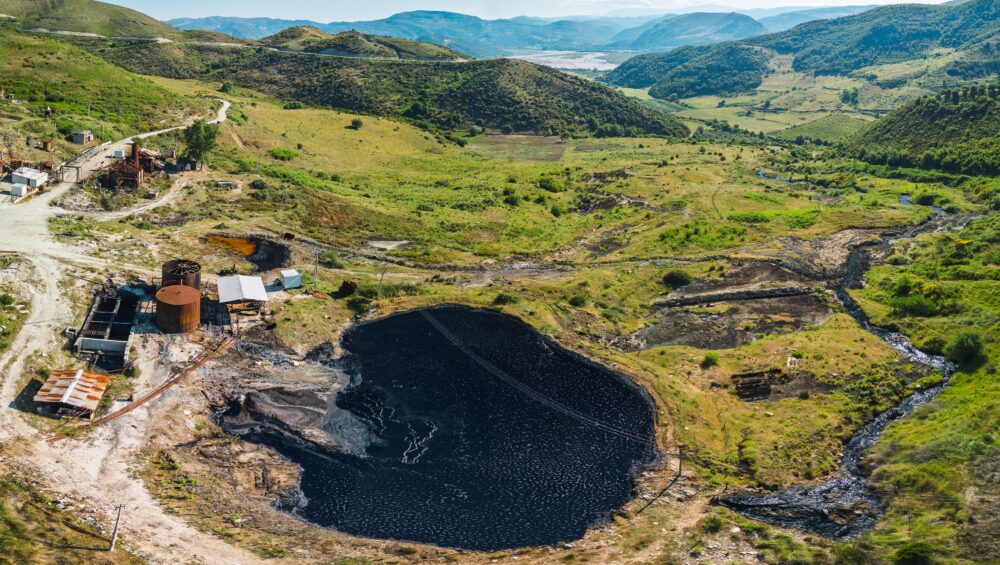Tirana, Vienna, Radolfzell – 1 July 2025 – Two years after its landmark designation in March 2023 as Europe’s first Wild River National Park, the Vjosa River is under continuous pressure from extractive industries, infrastructure expansion, and mismanaged development, putting the park’s ecological integrity and its global conservation value at risk. If the Albanian government continues to ignore these pressures, the Vjosa risks becoming a ‘paper park’ —protected in law but not in reality.
At the same time, the Albanian government is pursuing UNESCO Biosphere Reserve status for the Vjosa Valley. But unless the serious threats outlined below are addressed and resolved, inclusion in the Biosphere Reserve list will offer only symbolic prestige while real protection remains absent on the ground.
A new report, Mapping Pressures in the Vjosa Wild River National Park, documents these threats in detail. The assessment, submitted to the National Agency for Protected Areas in March 2025, highlights the urgent need for enforcement and political action. Find the main threats mapped and summarised in a factsheet.
Key Threats Identified
- Oil extraction – Poorly monitored oil operations threaten the Vjosa’s biodiversity and water quality. Frequent spills have been documented, contaminating water and harming aquatic ecosystems. Despite being banned in the National Park’s Management Plan, oil spills continue unchecked along the riverbanks, as reported.
- Bitumen Extraction and Processing – Bitumen mining in the river’s mid-section causes severe environmental damage. Illegal dumping of mining waste continues, endangering habitats and water systems. Although prohibited, weak enforcement allows these practices to persist.
- Water abstraction – Excessive water diversion for agriculture, industry, and tourism is contributing to reduced river flow, which in turn affects aquatic ecosystems and downstream communities. With climate change projected to reduce water availability in the Vjosa by 30% by 2050, unregulated abstraction will become an even greater threat.
- Gravel extraction – Ongoing gravel removal disrupts river hydrology, destroys fish spawning grounds, and destabilises the riverbed.
- Urban waste and sewage – Poor waste and sewage management pollute the river, endangering wildlife and public health. Waste sites are often located too close to the river, which risks contamination during floods. Rural areas contribute significant plastic pollution, and untreated wastewater is directly discharged into the Vjosa.
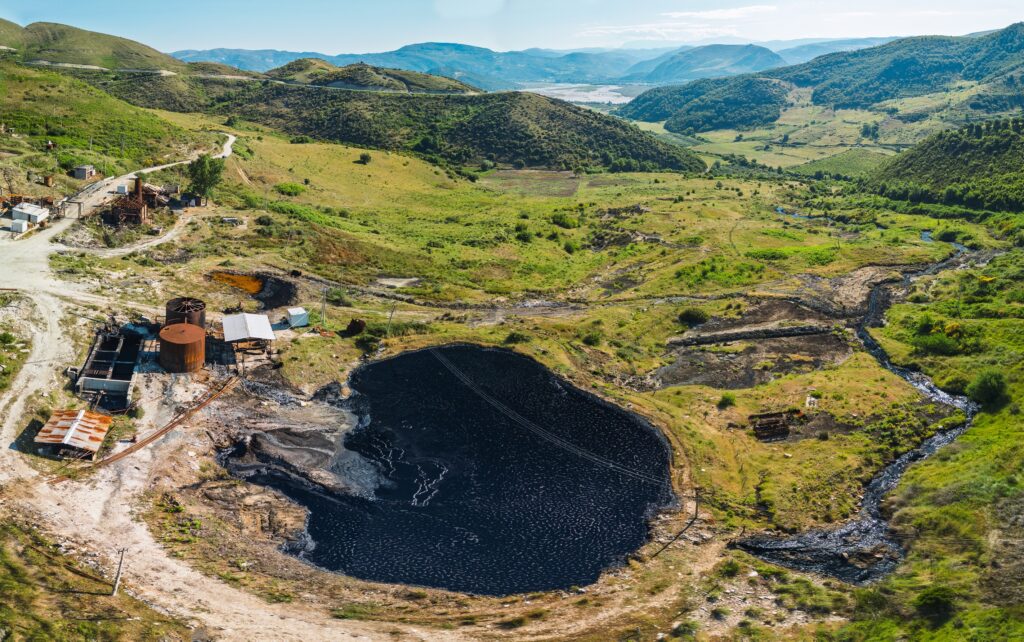
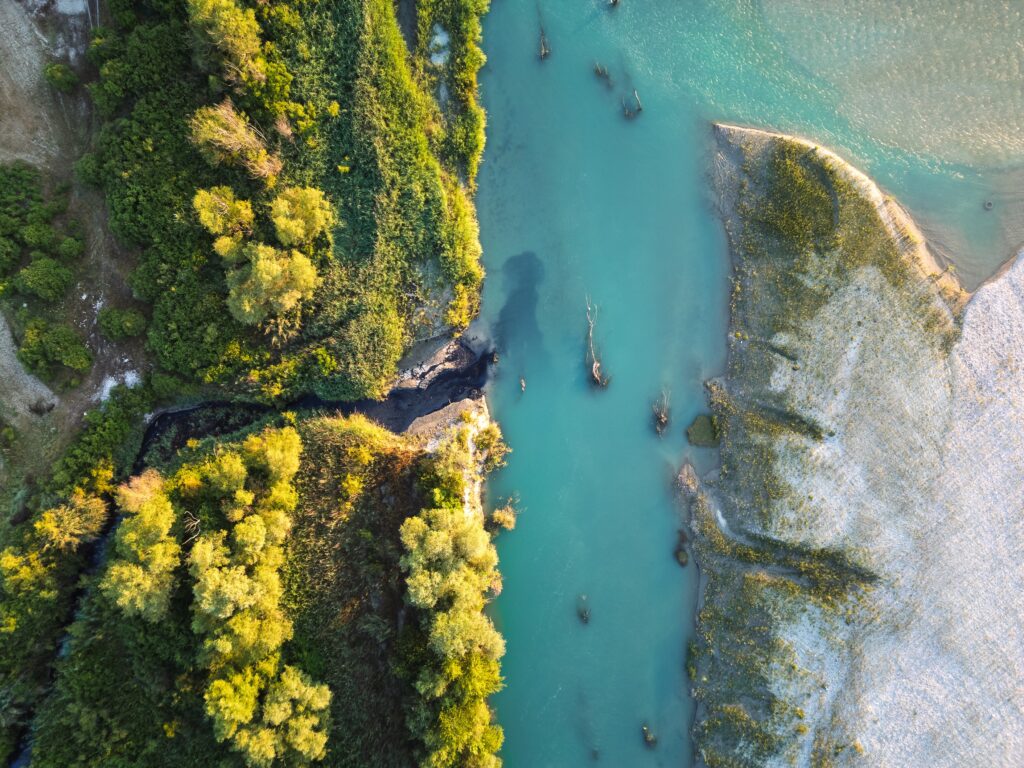
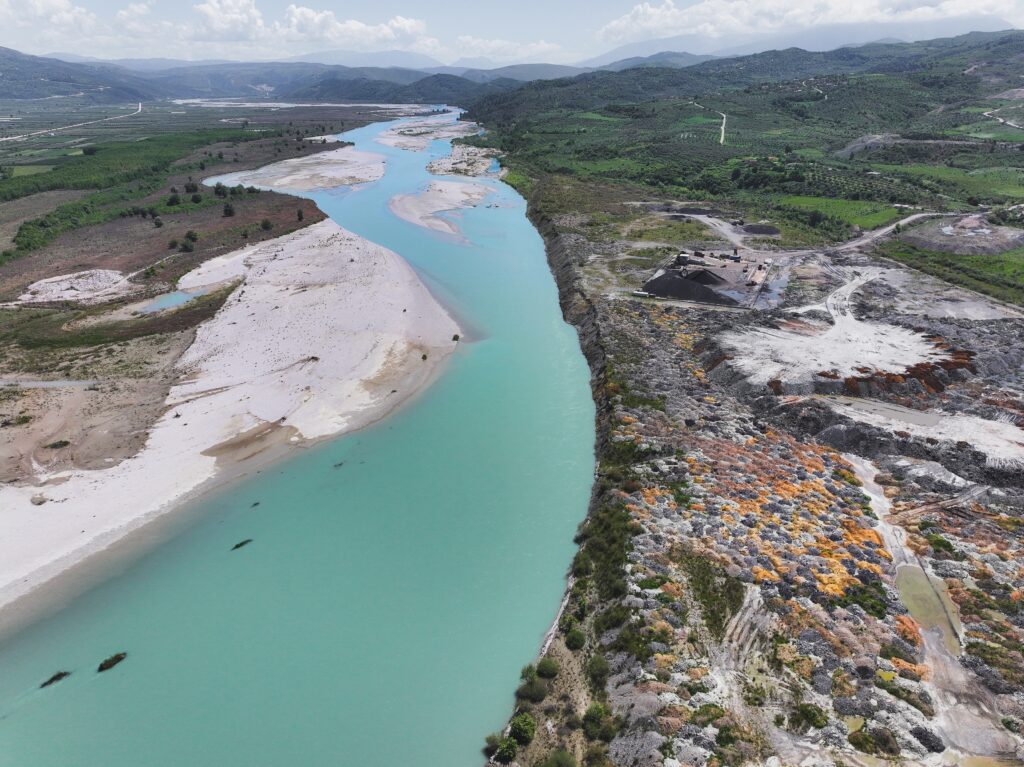
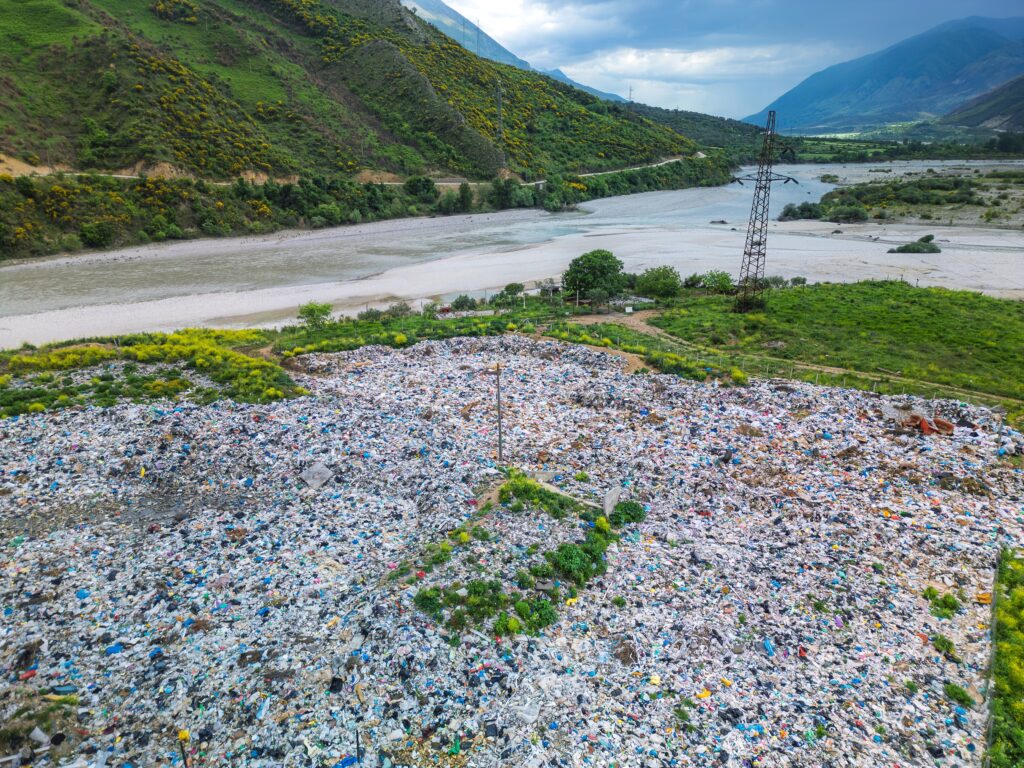
In addition to these five major threats, uncontrolled tourism development endangers the park’s ecological integrity. While sustainable tourism is welcome, rapid and poorly planned expansion of facilities poses challenges to habitat preservation, visitor management, and ecological resilience.
What Needs to Happen
The severity of some of these pollution cases would constitute environmental crimes even outside a protected area. In the context of a newly established national park, such violations are especially alarming and demand urgent action to preserve the credibility of the park’s designation.
Therefore, we are calling on the Albanian government and the Ministry of Tourism and Environment to:
- Enforce strict regulations that aim to monitor and prevent extractive and polluting activities, such as bitumen mining, oil spills, and gravel extraction.
- Oblige the extractive industry companies to develop and carry out restoration projects based on the “Polluter Pays” principle.
- Revision/Resettle of municipal waste disposal locations to avoid plastic water pollution. Additionally, municipalities must develop and implement rehabilitation actions for waste disposal sites and strengthen waste management systems and water treatment facilities in surrounding communities.
- Ensure strict monitoring of water abstraction and work in cooperation with municipalities and the Ministry for Agriculture to prevent improper water use.
- Implement strict monitoring of uncontrolled development and the expansion of tourism facilities near the national park, as these may disturb biodiversity and compromise the park’s conservation values.
Why Vjosa Matters
The Vjosa River system is home to over 1,100 species, including 13 globally threatened animals, and is one of Europe’s last large, free-flowing rivers. Its designation as an IUCN Category II National Park was a significant milestone in international river conservation.
“This park was celebrated globally, but the reality on the ground tells a different story. Without urgent political will, the Vjosa risks being protected only on paper.” Olsi Nika from EcoAlbania
Background information
- Download the full report Mapping Pressures in the Vjosa Wild River National Park, as well as the FACTSHEET
- View the online MAP of the pressures in the Vjosa Wild River National Park.
- The Vjosa is the last big wild river in Europe outside Russia. Along her course of almost 270 kilometres, the river flows entirely unobstructed from the Pindus Mountains to the Adriatic Sea. In March 2023, after ten years of our campaign, the Albanian government proclaimed Europe’s first Wild River National Park.
- The initiative to protect the Vjosa is part of the “Save the Blue Heart of Europe” campaign, organised by Riverwatch and EuroNatur. In Albania, the local partner is EcoAlbania. In our efforts to protect the Vjosa as a National Park, we partnered with the outdoor company Patagonia.
- The “Save the Blue Heart of Europe” campaign is supported, amongst others, by the Manfred-Hermsen-Stiftung.


